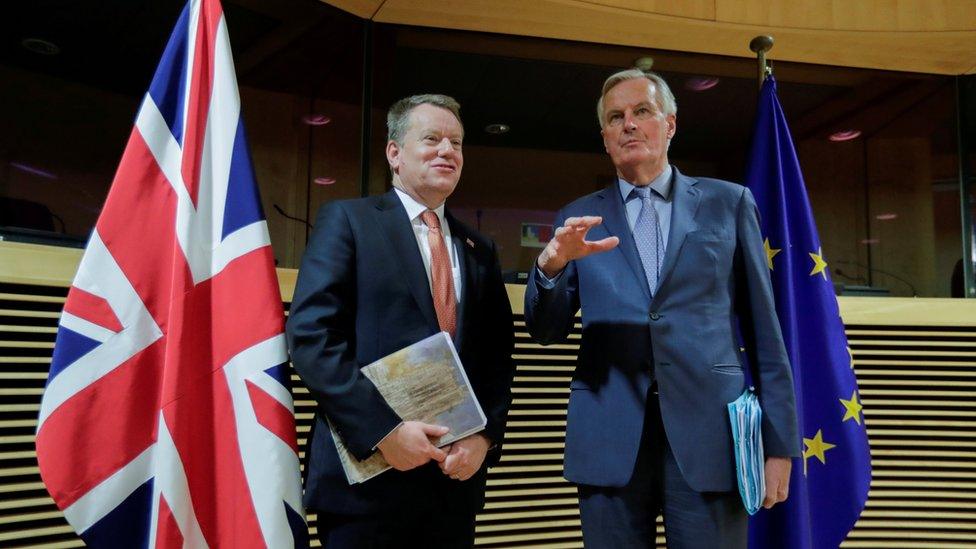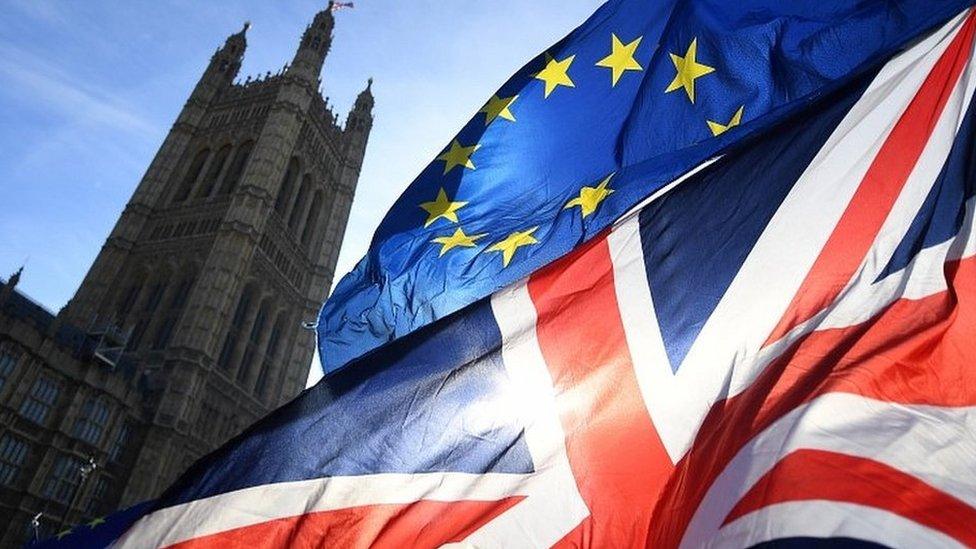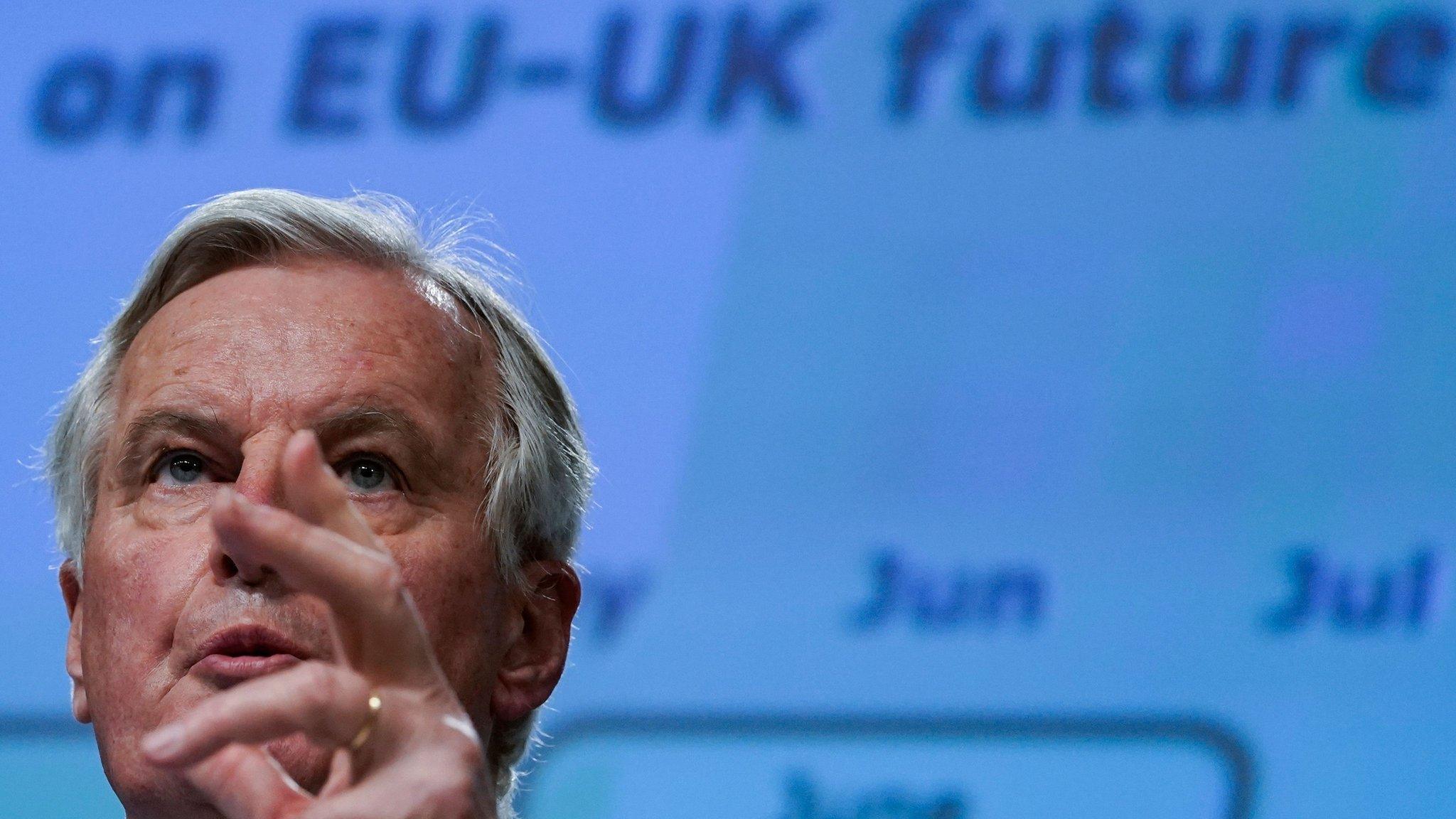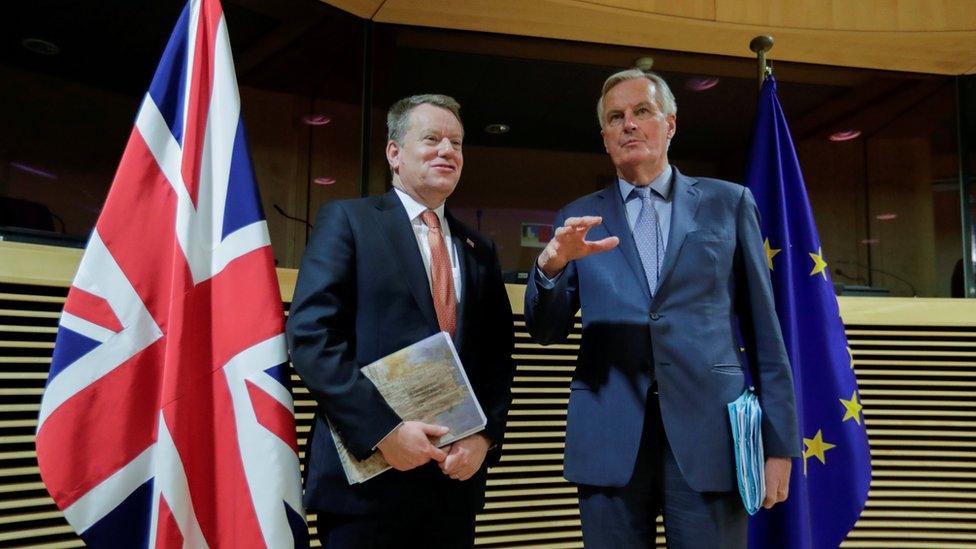Brexit: Blow to UK car industry in search for EU deal
- Published
- comments

Lord Frost (left) and EU negotiator Michel Barnier
Britain's car industry risks losing out even if there is a post-Brexit trade deal with the EU, according to documents seen by the BBC.
Car parts from Japan and Turkey used in the UK will not be treated as British, so some exports may see higher tariffs.
In a letter, Britain's chief Brexit negotiator says the UK has failed so far to get the car parts deal it wants, and "obviously cannot insist on it".
Having enough parts sourced within the UK and EU is key to a free trade deal.
In a letter to the car industry, seen by the BBC, chief negotiator Lord Frost says one of their key priorities - that parts and components from Japan and Turkey count as British in any deal - has been rejected by the European Commission.
This risks some UK automotive production attracting taxes on trade, known as tariffs, when exported to the EU, even if there is a "zero tariff" trade deal struck with the EU.
A separate draft legal text, also obtained by the BBC, lists the UK's request for manufacturing of electric cars, batteries, and bicycles to be treated leniently, and count as British, even if the majority of components come from elsewhere.
The letter says: "I am sorry to say that so far they [EU negotiators] have neither been willing to discuss these nor share any proposed text with us".
Both documents refer to the need, even in a deal, for UK manufacturers to prove that UK-exported goods are actually British-made, with a specified threshold of British parts, expected to be around a half.
Under the terms of an anticipated deal with the EU, any components from EU countries can count as British - something known as "cumulation".
But the letter reveals the requirement for that to be extended to other partners of the UK and EU, in particular Japan and Turkey, is being refused.
Confused by Brexit jargon? Reality Check unpacks the basics.
Much UK manufacturing is below the required threshold, although the reverse is not the case for the European Union. The problem is particularly acute for electric vehicles where an even larger proportion of the value of the car is contained in the battery.
"The commission has made clear that it will not agree third-country cumulation in any circumstances, which we regret, but obviously cannot insist upon," says Lord Frost's letter, written on 7 September.
Senior figures in the car industry expressed the view that the government could have chosen to insist on a deal that did contain such measures. But discussions on such subjects have been stalled by the impasse over fishing rights and subsidy powers.
Mike Hawes, the chief executive of the Society of Motor Manufacturers and Traders, said: "Given its importance to the economy and livelihoods and the damaging consequences of tariffs we need the sector prioritised in negotiations, not traded off against other industries."
UK commitment
Nissan, the Japanese company with 7,000 UK workers and a large factory in Sunderland, urged UK and EU "negotiators to work collaboratively towards an orderly balanced Brexit that will continue to encourage mutually beneficial trade".
There is particular concern in the motor industry about the risk around electric cars, as many key components, including batteries, are sourced outside the EU.
A spokesman for Prime Minister Boris Johnson said on Wednesday that the government would keep working with the sector, which employs some 800,000 people in Britain and has continually lobbied for free and unfettered trade with its biggest market to be kept.
"Rules of origin commitments exist in all free-trade agreements and as negotiations progress we remain committed to working with the automotive industry to try to ensure an outcome that reflects business interests across the UK." he said.
Lucy Powell, Labour's shadow minister for business and consumers, said: "This is really worrying for our country's automotive industry. The government must listen to businesses and trade unions, and crack on to deliver the trade deal with the EU they promised during the election."
The original Brexit deal negotiated by former PM Theresa May contained a route to minimise checks on what are known as "rules of origin".
That option was removed as part of the revision to the withdrawal agreement a year ago. But Lord Frost points out that the UK and EU27 car industries have jointly asked for such arrangements, including special consideration for electric vehicle exports.
- Published29 September 2020

- Published27 February 2020

- Published8 September 2020
